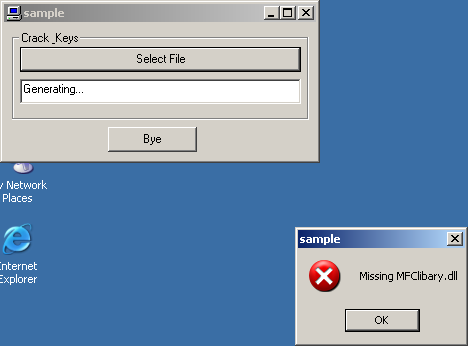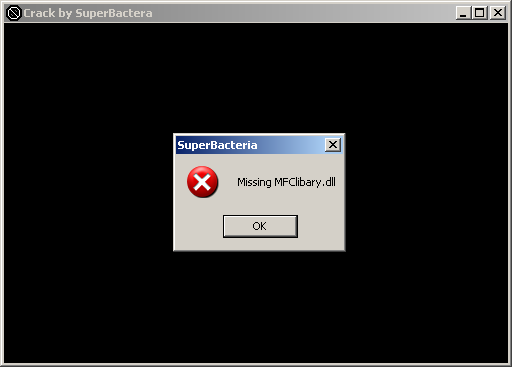P2P-Worm:W32/Bacteraloh
Summary
P2P-Worm.Win32.Bacteraloh is a family of P2P-Worms similar to P2P.Worm.Win32.Backterra. Unlike Backterra, Bacteraloh variants may have the additional functionality of dropping Virus.Win32.Sality variants. For a description of Sality, please see our description of Virus.Win32.Sality.Q
Removal
Based on the settings of your F-Secure security product, it will either move the file to the quarantine where it cannot spread or cause harm, or remove it.
A False Positive is when a file is incorrectly detected as harmful, usually because its code or behavior resembles known harmful programs. A False Positive will usually be fixed in a subsequent database update without any action needed on your part. If you wish, you may also:
-
Check for the latest database updates
First check if your F-Secure security program is using the latest updates, then try scanning the file again.
-
Submit a sample
After checking, if you still believe the file is incorrectly detected, you can submit a sample of it for re-analysis.
Note: If the file was moved to quarantine, you need to collect the file from quarantine before you can submit it.
-
Exclude a file from further scanning
If you are certain that the file is safe and want to continue using it, you can exclude it from further scanning by the F-Secure security product.
Note: You need administrative rights to change the settings.
Technical Details
Distribution
Bacteraloh spreads through file-sharing networks (primarily Emule) by disguising itself as a software crack. To give credibility to the illusion, when executed the worm will display a fake interface and a dialog box with the message "Missing MFClibary.dll", as seen in the samples below:


Installation
The Bateraloh variants that include functionality to install Virus.Win32.Sality will drop a standalone DLL in the folder %system32%. The DLL file is then injected into running processes. If Emule file sharing software is detected, Bacteraloh will create multiple copies of itself in:
- C:\Windows\Temp\Bactera\Â
The copies are labeled using names selected from a long list. The names are mostly in the following format:
- Crack & Keygen all Versions e.g., Spacetanks Crack & Keygen all Versions
- Crack & Keygen and all lower versions e.g., Winamp 5.112 Pro and all lower Versions Crack & Keygen
)
Protect your devices from malware with F‑Secure Total
Protecting your devices from malicious software is essential for maintaining online security. F‑Secure Total makes this easy, helping you to secure your devices in a brilliantly simple way.
- Award-winning antivirus and malware protection
- Online browsing, banking, and shopping protection
- 24/7 online identity and data breach monitoring
- Unlimited VPN service to safeguard your privacy
- Password manager with private data protection
More Support
Community
Ask questions in our Community .
User Guides
Check the user guide for instructions.
Submit a Sample
Submit a file or URL for analysis.